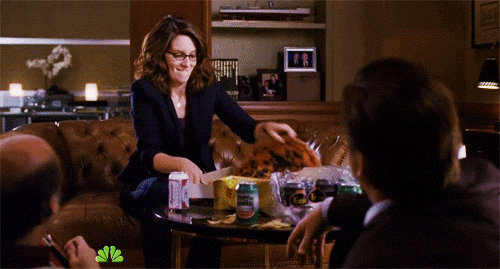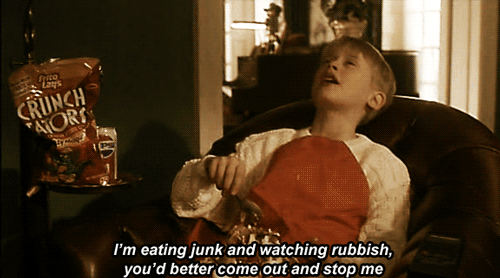We’ve all been there — pulling an all-nighter for a test or stumbling home from a night out with our Seamless and Favor apps calling our names. It takes everything in our power not to call our favorite pizza place for a delivery or sift through our refrigerator, but more often than not, we give in.
The phrase “extra weight after 8 pm” repeats in our heads, and when the pounds seem to pack on as our midnight GrubHub order history grows, we have to think, “Is there a direct correlation between the two?”
As a college student, it’s always hard to keep health a priority when it comes to choosing food. Cooking is time-consuming, organic food is expensive, and healthy restaurants are pretty scarce on any given campus. Whataburgers, Pizza Huts, and Burger Kings are much easier to find than a Chop’t or Whole Foods, especially when the clock strikes 12.
That’s why it’s usually hard to keep the diet we promised ourselves to start in mind when our stomach growls at night. The healthiness of the food we eat decreases by 1.7% for every hour that passes in the day, meaning we typically eat our healthiest meal at the beginning of the day and then it’s all downhill from there, and the convenience and price of fast food 24/7 doesn’t help.

Photo courtesy of animatedpizzagifs.com
The extra shot at the pregame, the anxiety of school, and the crazy schedules are also all reasons college students tend to turn to junk instead of the healthy alternative they would have chosen earlier.
Since your first class of the day could be at 2 pm, college kids generally wake up later and stay up much later than the average adult. People need to refuel at least every 4-5 hours, so if you have dinner at 7 pm and go to bed at 2 am, you’re going to need to eat something in between… it’s inevitable.
Many times, these late nights when you’re awake are due to the infamous college workload. When you’re cramming for your Econ midterm and haven’t paid attention in class for the past two weeks, your comfort food of choice is probably going to be the Hershey bar in the vending machine rather than the carrot sticks in the fridge.

Photo by Becky Hughes
The experts at Picture Fit explore the myth of weight gain from late night eats and the truth isn’t exactly what we expect. In reality, we gain weight when we eat more calories than we burn off. When we sleep, it’s time spent not running, walking, or doing anything that will burn off the Ben & Jerry’s “Chunky Monkey” you paired with your Netflix binge show before bed.
However, it doesn’t matter when those calories are consumed. Eating a box of donuts at 10 am is the same calorie intake as eating a box of donuts at 10 pm. If you don’t burn off these extra calories, they will be stored as body fat regardless of the sun position, but you are much more likely to burn these calories awake than asleep. If you’re planning on pairing your homework with a happy meal or sharing a pie of pizza with your friends after a frat party, it’s important to keep this extra meal in mind all day so you can set aside calories for a midnight snack.

Photo courtesy of pixshark.com
Still wondering if you should indulge in late night munchies? That’s really a judgment call. It’s as simple as this — eat healthy all day, and you can spoil yourself at night, but if you had a big, hungover brunch that morning, try to go straight to bed without making a pitstop in the kitchen.


